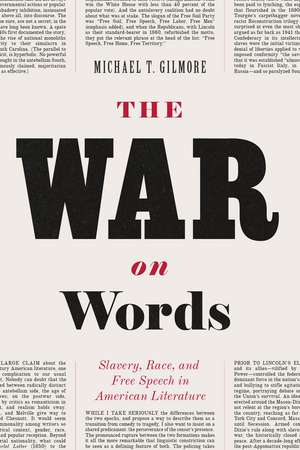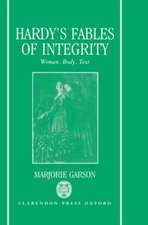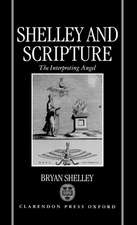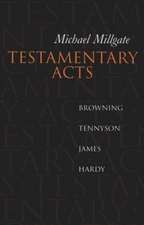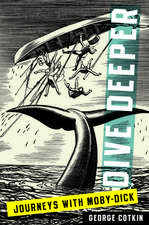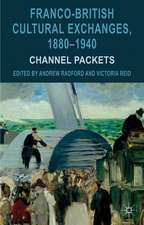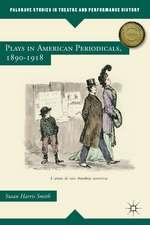The War on Words: Slavery, Race, and Free Speech in American Literature
Autor Michael T. Gilmoreen Limba Engleză Paperback – 10 feb 2014
Proposing a radical new interpretation of nineteenth-century American literature, The War on Words examines struggles over permissible and impermissible utterance in works ranging from Thoreau’s “Civil Disobedience” to Henry James’s The Bostonians. Combining historical knowledge with groundbreaking readings of some of the classic texts of the American past, The War on Words places Lincoln’s Cooper Union address in the same constellation as Margaret Fuller’s feminism and Thomas Dixon’s defense of lynching. Arguing that slavery and race exerted coercive pressure on freedom of expression, Gilmore offers here a transformative study that alters our understanding of nineteenth-century literary culture and its fraught engagement with the right to speak.
Preț: 270.14 lei
Nou
Puncte Express: 405
Preț estimativ în valută:
51.69€ • 54.11$ • 43.02£
51.69€ • 54.11$ • 43.02£
Carte tipărită la comandă
Livrare economică 31 martie-14 aprilie
Preluare comenzi: 021 569.72.76
Specificații
ISBN-13: 9780226101699
ISBN-10: 022610169X
Pagini: 340
Ilustrații: 1 halftone
Dimensiuni: 152 x 229 x 25 mm
Greutate: 0.45 kg
Editura: University of Chicago Press
Colecția University of Chicago Press
ISBN-10: 022610169X
Pagini: 340
Ilustrații: 1 halftone
Dimensiuni: 152 x 229 x 25 mm
Greutate: 0.45 kg
Editura: University of Chicago Press
Colecția University of Chicago Press
Notă biografică
Michael T. Gilmore is the Paul Prosswimmer Professor of American Literature at Brandeis University.
Cuprins
Acknowledgments
Introduction
Part I: Slavery, Race, and Free SpeechIntroduction
Part II: Antebellum
Emerson: Prospects
Thoreau: Words as Deeds
Fuller: History, Biography, and Criticism
Hawthorne and the Resilience of Dissent
Stowe: From the Sacramental to the Old Testamental
Part III: Antebellum/Postbellum
Speech and Silence in Douglass
Whitman: From Sayer-Doer to Sayer-Copyist
Slit Throats in Melville
"Speak, man!": Billy Budd in the Crucible of Reconstruction
Intertext: "Bartleby, the Scrivener"
Part IV: Postbellum
Tourgée: Margin and Center (with an Addendum on Jackson and the Indian Question)
James and the Monotone of Reunion
Was Twain Black?
Crane and the Tyranny of Twelve
Choking in Chesnutt
Dixon and the Rebirth of Discursive Power
Timeline
Notes
Index
Recenzii
"Perceptive."
“The War on Words delivers an impressively wide-ranging reinterpretation, at once rigorously astringent and perceptively sympathetic, of how canonical American writers coped with the formidable challenges not to engage in public talk about slavery and racism. Though some of Gilmore’s assessments are bound to provoke controversy, no serious reader of this book—which should indeed be required reading for all serious Americanists—will fail to come away informed and invigorated by Gilmore’s understanding of the de facto constraints on expression that confront even our ‘free’ society, both then and now.”
“The War on Words is a brave and brilliant book that explores the fact of censorship, particularly as it operated in matters of slavery and race, in nineteenth-century American literature and politics. While positioning the Civil War as the moment when ‘the nature of utterance’ shifted from the comic to the tragic, from prophecy to indirection, from abolitionists to the Klan, Gilmore nevertheless attends to the consistency, across the century, with which words are championed, attacked, feared, and erased. With remarkable range and acuity, Gilmore convincingly demonstrates that what could not be said is as significant an impetus for the production and understanding of American literature as what could.”
“Starting from the silences and evasions about race in the Declaration and Constitution, Michael T. Gilmore traces the fate of free speech as he conducts a compelling re-envisioning of the whole span of nineteenth-century American political culture and literature—from Emerson, Thoreau, and Lincoln to Stephen Crane, Twain, and Thomas Dixon. Using Bartleby’s mid-century silence as a brilliant hinge to its narrative, The War on Words moves from heroic antebellum proponents of words as deeds to the ‘tragedy of linguistic impotence’ that marked the betrayal of African-Americans as Reconstruction unraveled and realism reflected the repudiation of racial equality. In Gilmore’s expert hands nearly a score of canonical figures are accorded fresh and persuasive readings; The War on Words is an exciting book.”
“Gilmore's interpretations explain the texts' plot twists and figurative language in original ways, and with illuminating reference to historical contexts.”
“Michael T. Gilmore’s execution of his thesis is vigorous, enlightening, and arguable in a positive sense.”
